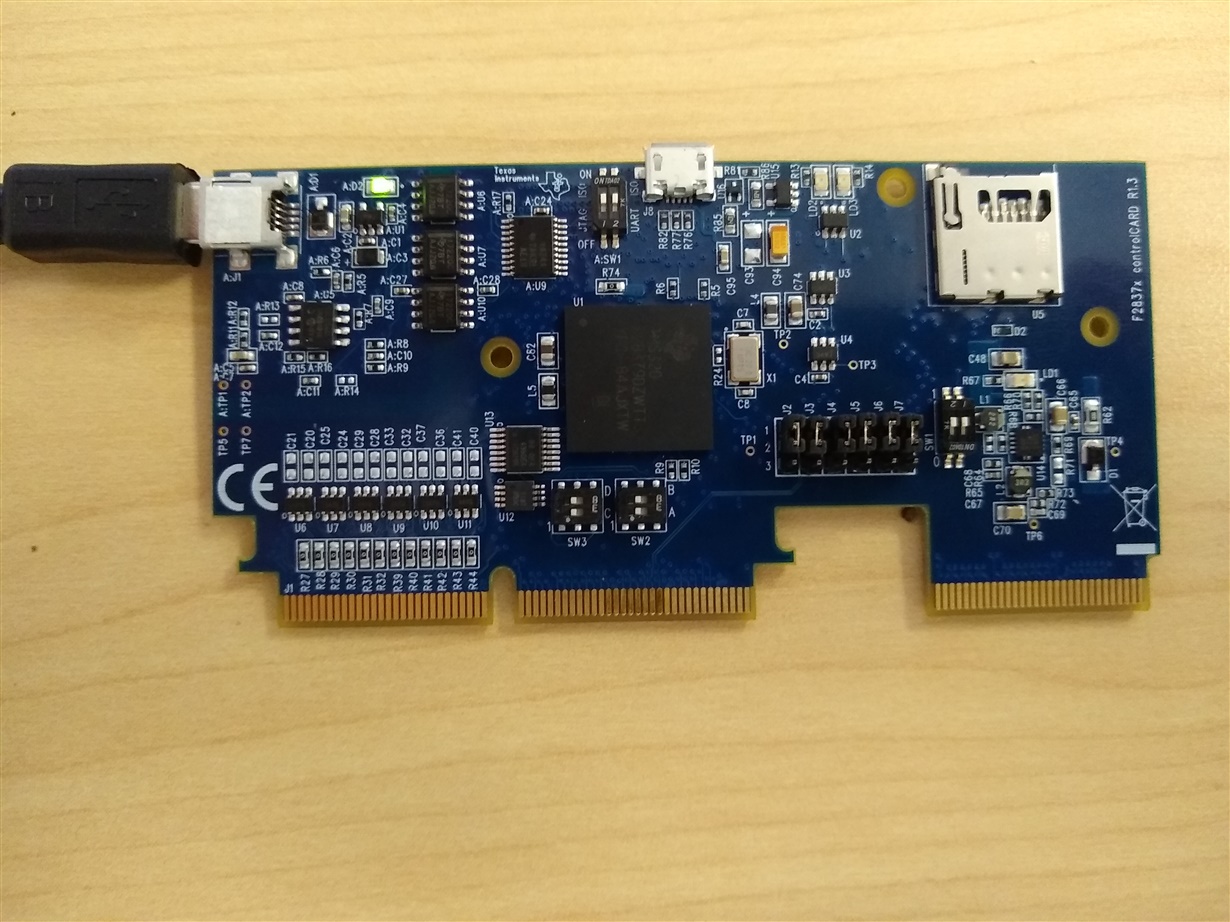I broke the USB connector off an old ControlCARD, so I purchased and new ControlCARD. Both the new and the old are R1.3. Unless I missed something, I set all the jumpers the same on the new board as the old. I also tried a couple other jumper settings. I was able to program my equivalent LaunchPad MCU, so I believe the software settings and USB should be good. I keep receiving the following error:
Error connecting to the target:
(Error -2131 @ 0x0)
Unable to access device register. Reset the device, and retry the operation. If error persists, confirm configuration, power-cycle the board, and/or try more reliable JTAG settings (e.g. lower TCLK).
I'm not sure what could be wrong.
-Jon


